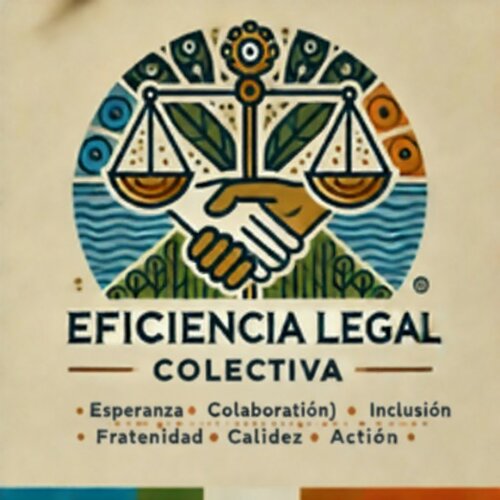Best Constitutional Law Lawyers in Guadalajara
Share your needs with us, get contacted by law firms.
Free. Takes 2 min.
List of the best lawyers in Guadalajara, Mexico
About Constitutional Law in Guadalajara, Mexico
Constitutional Law in Guadalajara, Mexico encompasses the fundamental principles and regulations outlined in the Mexican Constitution. It involves the interpretation and application of these laws to protect individual rights, maintain the balance of power, and ensure the proper functioning of government institutions. Understanding Constitutional Law is crucial for safeguarding your rights and effectively addressing any legal issues that may arise.
Why You May Need a Lawyer
Seeking legal assistance in Constitutional Law may be necessary in various situations. Some common scenarios where you may require a lawyer include:
- Violation of rights: If you believe your constitutional rights have been infringed upon, such as freedom of speech, expression, or religion, a lawyer can help you navigate the legal process to seek justice.
- Government action: When dealing with governmental bodies, agencies, or officials, legal advice may be needed to ensure compliance with constitutional procedures and protect your interests.
- Constitutional challenges: If you wish to challenge existing laws or policies on constitutional grounds, a lawyer experienced in Constitutional Law can assist you in presenting a strong case.
- Conflict with the constitution: If you are involved in a legal dispute and believe that a law or government action violates the constitution, an attorney can help you analyze the situation and present appropriate legal arguments.
- Seeking constitutional remedies: If you require redress for a constitutional violation, such as compensation, injunctions, or other legal remedies, a lawyer can guide you through the process.
Local Laws Overview
Guadalajara, Mexico, follows the Mexican Constitution. Some key aspects of local laws that are particularly relevant to Constitutional Law include:
- Human rights: The constitution guarantees a range of human rights, including freedom of speech, assembly, and association, as well as protection against discrimination.
- Federalism: Mexico operates under a federal system, granting certain powers to the federal government while reserving others for individual states. This can impact the implementation and enforcement of constitutional principles.
- Separation of powers: The constitution establishes the separation of powers among the legislative, executive, and judicial branches of government, ensuring a system of checks and balances.
- Judicial review: The judiciary has the power of judicial review, allowing them to assess the constitutionality of laws, government actions, and administrative decisions.
- Administrative procedures: Procedures for challenging the constitutionality of laws and government actions, as well as seeking redress, may vary based on local regulations.
Frequently Asked Questions
Q: What is the Mexican Constitution?
A: The Mexican Constitution is the supreme law of the country. It was adopted in 1917 and establishes the fundamental principles and rights that govern Mexico's legal system. It outlines the structure of the government and establishes the rights and responsibilities of both the government and its citizens.
Q: How can I file a constitutional complaint?
A: To file a constitutional complaint, known as an "amparo," you will need the assistance of a lawyer. They will help you gather the necessary evidence and prepare the legal arguments to present to the appropriate court. Please note that specific procedural rules and requirements apply, which your lawyer will guide you through.
Q: How long does it take to resolve a constitutional complaint?
A: The duration of a constitutional complaint can vary depending on several factors, including the complexity of the case, the court's workload, and the efficiency of the legal process. Some cases may be resolved within a few months, while others can take years.
Q: Can I challenge a law's constitutionality before it goes into effect?
A: Yes, it is possible to challenge the constitutionality of a law before it goes into effect. This can be done by filing a lawsuit called an "action of unconstitutionality" or an "action of unconstitutionality by omission" within 30 days after the law's official publication. Consulting with a lawyer promptly is crucial to meet the legal deadlines.
Q: Are there any free legal resources available to understand Constitutional Law in Guadalajara?
A: Yes, various educational institutions, online platforms, and legal aid organizations provide free resources to understand Constitutional Law. Some recommended resources include the websites of reputable universities' law faculties, the Mexican Supreme Court's official website, and legal information portals hosted by government bodies.
Additional Resources
- Supreme Court of Justice of the Nation - Official Website: https://www.scjn.gob.mx/
- National Human Rights Commission - Official Website: http://www.cndh.org.mx/
- Jalisco State Government - Official Website: http://www.jalisco.gob.mx/
- University of Guadalajara Faculty of Law - Official Website: https://derecho.udg.mx/
Next Steps
If you require legal assistance in Constitutional Law, it is advisable to consult with an experienced lawyer in Guadalajara, Mexico who specializes in this field. They will provide personalized advice based on your specific circumstances, educate you about your constitutional rights, and guide you through the legal process. Be prepared to provide any relevant documentation and details to facilitate the initial consultation with the lawyer.
Lawzana helps you find the best lawyers and law firms in Guadalajara through a curated and pre-screened list of qualified legal professionals. Our platform offers rankings and detailed profiles of attorneys and law firms, allowing you to compare based on practice areas, including Constitutional Law, experience, and client feedback.
Each profile includes a description of the firm's areas of practice, client reviews, team members and partners, year of establishment, spoken languages, office locations, contact information, social media presence, and any published articles or resources. Most firms on our platform speak English and are experienced in both local and international legal matters.
Get a quote from top-rated law firms in Guadalajara, Mexico — quickly, securely, and without unnecessary hassle.
Disclaimer:
The information provided on this page is for general informational purposes only and does not constitute legal advice. While we strive to ensure the accuracy and relevance of the content, legal information may change over time, and interpretations of the law can vary. You should always consult with a qualified legal professional for advice specific to your situation.
We disclaim all liability for actions taken or not taken based on the content of this page. If you believe any information is incorrect or outdated, please contact us, and we will review and update it where appropriate.














